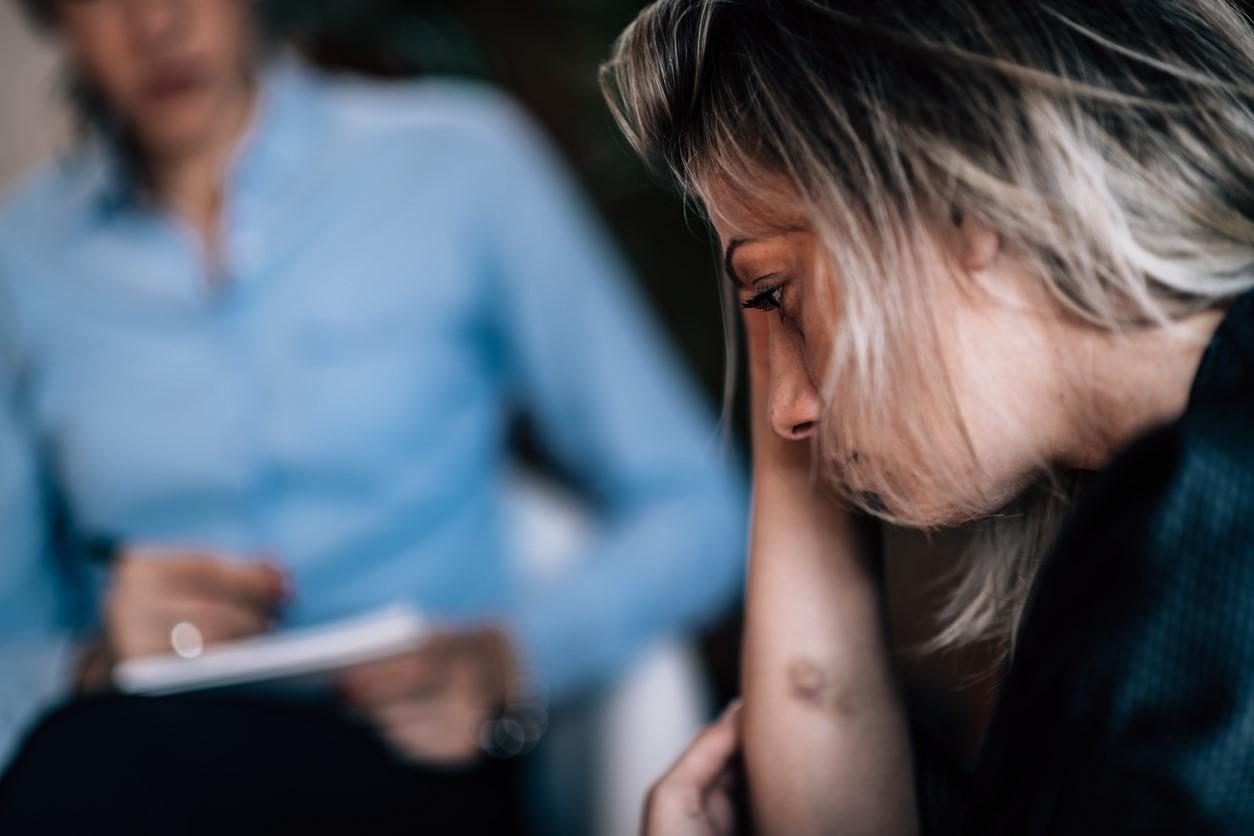A new study shows that the more than 32,000 survivors of severe COVID-19 and more than 16,000 survivors of other severe respiratory infections studied in England were at significantly higher risk than the general population for new anxiety disorders, dementia, psychosis, bipolar disorder, and new neuropsychiatric drug prescriptions in the first year after hospital release.
In the observational study, published today in JAMA Psychiatry, a team led by University of Oxford researchers analyzed data from all 8.38 million adults registered in national databases from Jan 24, 2020, to Jul 7, 2021.
Risk of new psychiatric prescriptions
Relative to the general population, the 32,525 survivors of COVID-19 and 16,679 survivors of other severe acute respiratory infections (SARI) were at higher risk for subsequent diagnosis of neuropsychiatric illnesses, the investigators found, but they noted that the absolute risks were low.
The hazard ratio [HR] for anxiety in SARI survivors was 1.86 (95% confidence interval [CI], 1.56 to 2.21) and 2.36 (95% CI, 2.03 to 2.74) for COVID-19 survivors. The HR for dementia was 2.55 (95% CI, 2.17 to 3.00) for SARI survivors and 2.63 (95% CI, 2.21 to 3.14) for those diagnosed as having COVID-19.
In an analysis limited to SARI survivors as the reference group and COVID-19 as the comparator group, there were no significant differences in rates of newly diagnosed anxiety disorder (adjusted HR, 1.00; 95% CI, 0.79 to 1.27), dementia (HR, 0.88; 95% CI, 0.69 to 1.13), depression (HR, 0.63; 95% CI, 0.25 to 1.58), or bipolar disorder (HR, 0.74; 95% CI, 0.32 to 1.69).
Nor did the two groups differ in their posthospitalization risk of new prescriptions for antidepressants (adjusted HR, 1.07; 95% CI, 0.90 to 1.27) or hypnotic or anti-anxiety medication (HR, 0.95; 95% CI, 0.80 to 1.24). But COVID-19 survivors had a 20% lower risk of a first antipsychotic prescription than SARI survivors did (HR, 0.80; 95% CI, 0.69 to 0.92).
Findings for all neuropsychiatric medications analyzed were similar. The adjusted HR for new prescriptions of antidepressants for SARI survivors was 2.55 (95% CI, 2.24 to 2.90), compared with 3.24 (95% CI, 2.91 to 3.61) for COVID-19 survivors.
The HR for new hypnotic or anti-anxiety drug prescriptions was 3.10 (95% CI, 2.74 to 3.51) for SARI survivors and 3.79 (95% CI, 3.38 to 4.25) for COVID-19 survivors, while the HR for new antipsychotic drug prescriptions was 4.64 (95% CI, 4.20 to 5.12) for SARI survivors and 4.78 (95% CI, 4.28 to 5.33) for those with COVID-19.
Direct comparison of the COVID-19 and SARI groups revealed no significant differences other than a lower risk for antipsychotic prescriptions in the former (HR, 0.80; 95% CI, 0.69 to 0.92).
Role of disease severity
Although the relative risks of these outcomes in survivors of severe COVID-19 and SARI hospitalization was significantly higher than for the general population, the absolute risks were low, the study authors noted.
"Although post–COVID-19 syndrome is of legitimate topical interest in the current context of uncertainty regarding optimal support for survivors of COVID-19, our results suggest that from the perspective of formally diagnosed or treated neuropsychiatric complications, severe COVID-19 does not predicate markedly different morbidity rates than other forms of SARI," the researchers wrote.
The elevated risks of neuropsychiatric conditions among both SARI and COVID-19 survivors could result from physiologic alterations, physical deconditioning, and other infection-related stressors, they said.
Ultimately, they said, the findings suggest that disease severity—not the causative pathogen—has a role in neuropsychiatric disorders after severe respiratory infections. "These results may help refine our understanding of the postsevere COVID-19 phenotype and may inform postdischarge support for patients requiring hospital-based and intensive care for SARI regardless of causative pathogen," they concluded.




















